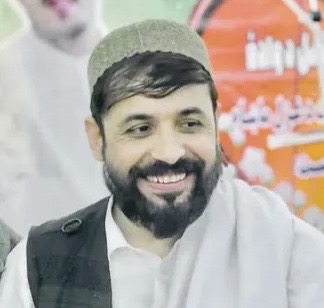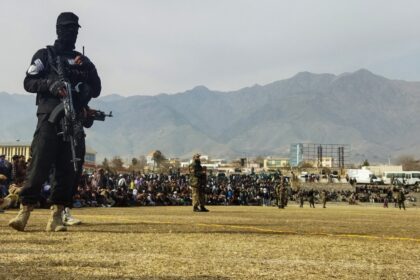RASC News Agency: Credible sources have confirmed that the Taliban regime has arrested Rahim Eskandar, a well-known social media activist distinguished for his outspoken criticism of the group. Eskandar’s detention follows his public condemnation of statements made by a senior Taliban official concerning the prohibition on the group’s fighters engaging in confrontations with Pakistani security forces. According to reliable reports from Kabul, the so-called “Reform Committee” of the Talibancoperating directly under the authoritarian command of Supreme Leader Mullah Hibatullah Akhundzada has orchestrated Eskandar’s arrest. This move was specifically precipitated by Eskandar’s vocal dissent against Saeedullah Saeed, the head of the committee, who had emphatically declared that no individual may independently participate in jihadist operations abroad without the explicit authorization of the Taliban Emir.
Eskandar, a former journalist previously detained by the National Security Organization on allegations of collaborating with the Taliban, is currently held in Kabul alongside members of the Tehrik-e-Taliban Pakistan (TTP). His social media presence is marked by overt support for both the TTP and the Baloch Liberation Movement, as well as close affiliations with the media wing of the Haqqani Networkvan infamous faction notorious for its involvement in regional terrorism and militant operations. In recent days, Eskandar’s social media platforms have been conspicuously silent. His most recent online engagement was a pointed question directed at Saeedullah Saeed on Facebook, challenging the rationale behind the latter’s restrictive directives: “What exactly are you trying to prove with these statements?”
The statements issued by the head of the Taliban’s Reform Committee have provoked a spectrum of responses within Taliban circles. Notably, Sheikh Abdul Sami Ghaznavi, a fervent Taliban advocate, publicly repudiated Mullah Hibatullah’s fatwa, asserting that the pursuit of jihad does not require the Emir’s permission an implicit challenge to the regime’s increasingly centralized control. Simultaneously, the Taliban’s ruthless suppression extends beyond activists to their own ranks. General Mobin, a high-ranking affiliate of the Taliban leadership, was recently sentenced to eighteen months’ imprisonment for publicly opposing official group policies, illustrating the regime’s zero tolerance for internal dissent.
These arrests occur against the backdrop of an intensified campaign over the past five months, in which the Taliban have apprehended numerous commanders and fighters suspected of traveling to Pakistan or recruiting for the Tehrik-e-Taliban Pakistan. This wave of repression underscores the regime’s concerted efforts to eliminate autonomous military initiatives and enforce absolute loyalty, particularly regarding cross-border militant activity that threatens their monopoly over armed jihad. This ongoing clampdown on freedom of expression and internal opposition epitomizes the Taliban’s authoritarianism, rooted in fear and suppression. By stifling independent voices and dissent within their own ranks and among broader society, the Taliban are entrenching a regime marked by repression, ideological rigidity, and political isolation, imperiling any prospects for peace or stability in the region.






